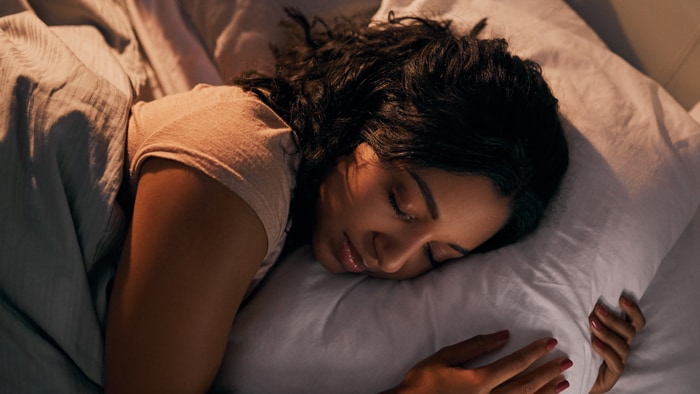Is insomnia hereditary?
By Gina Roberts-Grey Your DNA is responsible for more than the color or your hair or eyes. According to one study, the often-debilitating sleep disorder insomnia can be genetic and for some, insomnia may be hereditary. What’s the connection? Scientists say some people’s genes increase their stress-reactivity. And that increased stress response increases the likelihood of poor sleep and developing insomnia. Ironically, poor sleep can interrupt the normal function of your genes, leaving many stuck in a sleep-deprived vicious circle. Insufficient sleep can disrupt normal gene activity, noted Terry Cralle, certified clinical sleep educator, consultant for the American Sleep Apnea Association and director of Business Development for the Woodlands Sleep Evaluation Center in The Woodlands, Texas. “Genes are involved with how much sleep you need, and it is estimated that there could be six or more different types of insomnia linked to genes,” she said. Just one week of mild sleep deprivation affects the function of 711 different genes. “Recent research has found that sleeping during the day may disrupt approximately one-third of your genes,” Cralle said. That disruption can throw off your circadian rhythm, the 24-hour cycle that that tells your body when to sleep, and other bodily functions including metabolism, inflammation, stress and immune response. “Genes carry the instructions for making proteins in the body. These proteins make up the chemical signals and hormones that regulate the body and many processes like sleep,” Cralle noted. Think your DNA could be messing with your sleep? Genetic testing is the only way to know for certain whether your genes are scaring away the sandman. But a chat with family members could help you determine if you’re genetically predisposed to insomnia. Talk to as many relatives as possible: the more information you can gather, the better-equipped you’ll be to tackle the problem, Cralle said. And if you encounter any family members who have trouble sleeping, ask them what remedies they rely on to get a good night’s sleep. Then talk to your doctor. “Consult your physician about the effect genes can have on sleep, as well as other factors like stress, diet and sleep hygiene,” she said. And no matter what’s keeping you up at night, Cralle suggested a few tricks to promote a good night’s sleep. “Wind down early in the evening a few hours before going to bed, follow the same pre-sleep routine every night, and make sure your bedroom is cozy and inviting,” she said. “These habits can help increase the odds you’ll fall, and stay, asleep.” Practicing meditation or yoga an hour before bed also may help those predisposed to insomnia overcome their gene’s stress response and help promote sleep.



